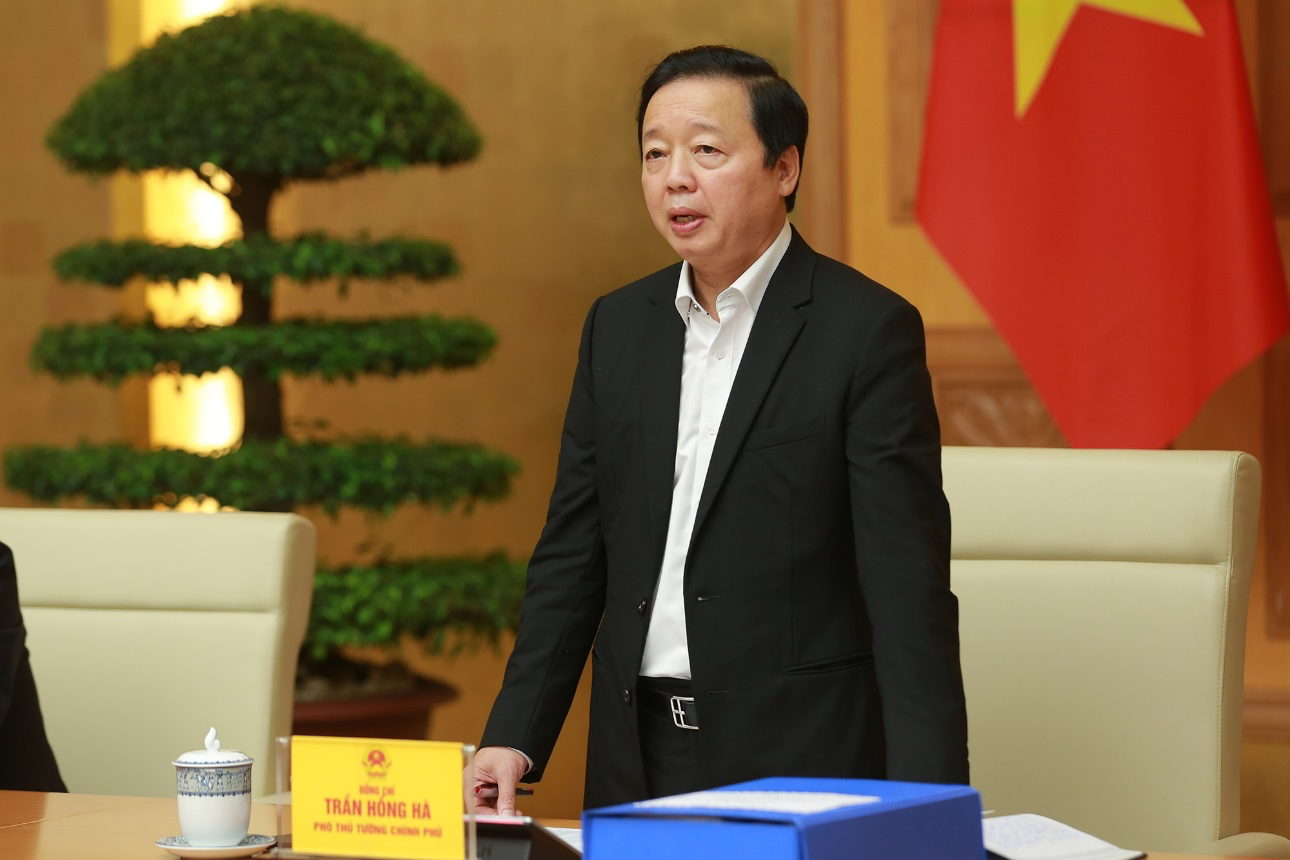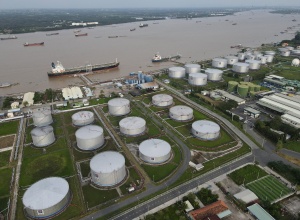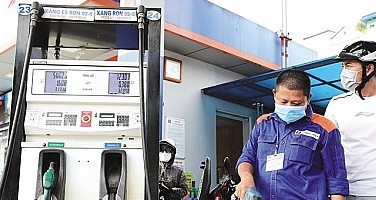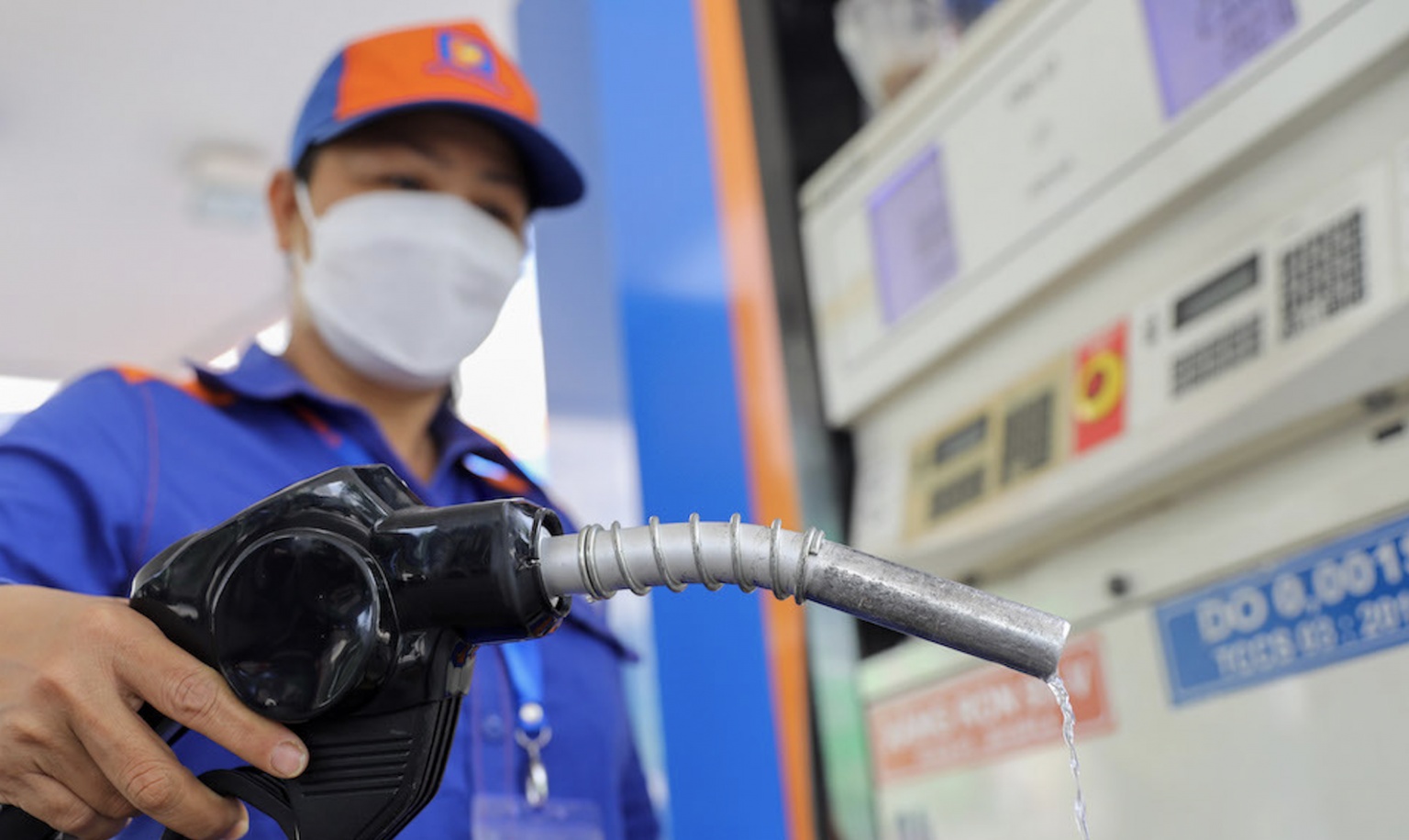Vietnam to expand petroleum stockpiles to 75-80 days of net imports
Speaking at a meeting on March 30, Deputy Prime Minister Ha said, "Planning cannot be entirely reliant on the government or subcontracted to enterprises."
 |
| Deputy Prime Minister Tran Hong Ha |
According to Ha, the concerns included in the preparation must be calculated, analysed, and be reflective of market demand and industrial development criteria, among them reserve time, product quality standards, storage systems, fire safety, and sanitation facilities.
The DPM stated, "The framework of private, corporate, commercial, and national reserves for emergencies must be described in terms of management model, administered and coordinated to ensure consistency, and harmonised in the interests of all stakeholders."
According to the standards of the International Energy Agency, the national planning on storage and stockpiling of petroleum and gas seeks to guarantee extra capacity of petroleum products and crude oil for the entire country equal to 75–80 days of net imports, moving towards 90 days of net imports. Minimum gas reserve capacity is focused on meeting 15 days of consumption.
The necessary infrastructure will be developed in line with transport connection capacity, with priority given to areas where large-scale seaports have been planned and areas that are conducive to waterway and land traffic. Efforts will be made to exploit all domestic resources and encourage foreign investors to invest in the infrastructure.
The system must conform to current standards, rules, and practises, as well as the country's requirements for economic growth and international integration.
The planning consultancy unit estimates that the total investment capital required will be approximately $11.5 billion, the majority of which will be mobilised from outside the budget, through private enterprise or other legal sources of funding.
State budget funds are prioritised for increasing the level of the national reserve for petroleum products.
According to Dr. Bui Ngoc Bao, chairman of the Vietnam Petroleum Association, international market fluctuations, supply capacity, and market demand, as well as government directives regarding infrastructure, energy conversion, and environmental issues, have a significant impact on the planning process. Therefore, the master plan for implementation should make the necessary modifications to prevent rigid planning should the energy structure change in the near future.
Current fresh petroleum reserves amount to around 65 days worth of net imports. Several facilities built to the old standards do not satisfy the new standards and require extensive renovations and repairs to guarantee compliance with modern requirements and safety protocols.
The storage system for liquefied petroleum gas has a restricted capacity. Presently, there are only ten warehouses with a capacity of 10,000 cubic metres or more, with no liquefied natural gas (LNG) warehouses operational.
Since industrial park development has not yet designated a corridor for gas pipes, as the building of additional gas pipelines from LNG storage to customers is fraught with difficulty.
The Ministry of Industry and Trade (MoIT) coordinated the formulation of the National Petroleum and Gas Supply and Storage Infrastructure Plan, specifying a number of articles of the Planning Law. These include ensuring consistency between the planning and socioeconomic development strategies, while meeting the requirements of economic development in harmony with environmental and national security needs.
The approved planning will serve as the basis for state management requirements and will serve as a guide for enterprises that wish to invest in expanding the national petroleum and gas reserve infrastructure.
 | Ministry of Industry and Trade aims to stabilise petrol market In 2022, Vietnam imported 8.87 million tonnes of petroleum, worth $8.97 billion, a sharp increase of 27.7 per cent year-on-year in volume and an increase of 118.5 per cent in value. |
 | MoIT and MoF discuss seven petroleum market issues The Ministry of Industry and Trade (MoIT) has suggested seven provisions to secure the petroleum supply, including an increase in the national petroleum reserve from nine to fifteen days of net imports. |
 | Over 250 petitions submitted to authorities on fragility of petroleum regulations The petitions concern the alteration of petroleum business restrictions in decrees No.83/2014/ND-CP and No.95/2021/NQ-CP, resulting in losses for retail establishments. |
What the stars mean:
★ Poor ★ ★ Promising ★★★ Good ★★★★ Very good ★★★★★ Exceptional
Related Contents
Latest News
More News
- Rising consumption and travel fuel ‘Tet season’ stocks (February 11, 2026 | 11:43)
- Education as strategic capital: why Dwight School Hanoi represents a long-term investment in Vietnam’s future (February 10, 2026 | 19:00)
- Green logistics–the vital link in the global energy transition (February 09, 2026 | 19:35)
- Wages and Lunar New Year bonuses on the rise (February 09, 2026 | 17:47)
- Temporary relief for food imports as businesses urge overhaul of regulations (February 07, 2026 | 09:00)
- Opella and Long Chau join forces to enhance digestive and bone health (February 06, 2026 | 18:00)
- Vietnam-South Africa strategic partnership boosts business links (February 06, 2026 | 13:28)
- Sun PhuQuoc Airways secures AJW Group support for fleet operations (February 06, 2026 | 13:23)
- Pegasus Tech Ventures steps up Vietnam focus (February 05, 2026 | 17:25)
- The generics industry: unlocking new growth drivers (February 04, 2026 | 17:39)

 Tag:
Tag:




















 Mobile Version
Mobile Version